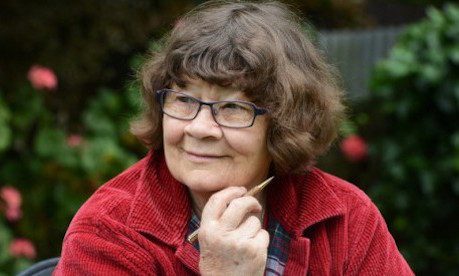When I read the church fathers’ teaching about sin, I acknowledge the principles but interpret them a different way.
Many women do this because feminine spirituality tends to be a little different, although complementary to the male model.
Our spiritual paths are shaped by our biological roles.
Most men achieve spiritual growth through information and structure.
Women have lateral outreach and find God in relationship, intuition and love. Each path is gift for the other.
What about sin? For a man, sin usually attacks personal integrity. For a woman, the effects of sin are almost always relational.
That list of seven deadly sins – pride, anger, lust, etc – is masculine, and women recognize it as such.
If we formed our own list, it would be all about unkind thoughts, words and deeds. It could probably look something like this: spite, jealousy, manipulation, betrayal, irrational emotion, gossip, lies.
When I read that list to a group of women, there is much laughter. We all identify with it.
We recognize that the masculine understanding of sin has its roots in scripture, and yes, there is a lot about sin in the Bible.
In Judaism, it was believed that all misfortune came from sin, be it illness, disability, poverty, famine, flood, war, sterility. In an oral tradition about Joachim, father of Mary, it is said that Joachim was ostracized as a sinner by men in the temple because he had no children. Poor Joachim!
Remember the man who was blind from birth? The disciples asked Jesus if the man had sinned, or was it his parents?
The last part of that question comes from the ten commandments (Exodus 20) in which God is said to visit the sins of the parents on the children of the third and fourth generations.
To have mental illness in those times, would have meant being cast out of your village because you were possessed by demons. There was also a layer cake view of the earth – heaven above, earth below and hell beneath the earth.
Times and understanding have changed.
Sin is still a reality, although now we view it in the context of our understanding of the human psyche. It is a negative manifestation of our ego, that me-first instinct that can lock us in a little prison of self.
Where does that selfish instinct come from? The obvious answer is that it’s a part of our primal instinct for self-preservation.
But on spiritual journey sin has a much bigger role.
Our sinfulness is what God has given us to work with. It is the raw material of growth.
Pilgrimage is all about movement and change, leaving burdens with Jesus at the foot of cross and moving with him to resurrection.
In this we become aware that our errors are valuable teachers.
We know if we were perfect, we would have no room for growth.
We may not fully understand the process, but sometimes we are blessed with a glimpse of how the darkness serves the light.
What we perceived as chaos in our lives, turns out to be a part of a perfect plan of love.
- Joy Cowley is a wife, mother, grandmother, great-grandmother and retreat facilitator.
News category: Analysis and Comment.




